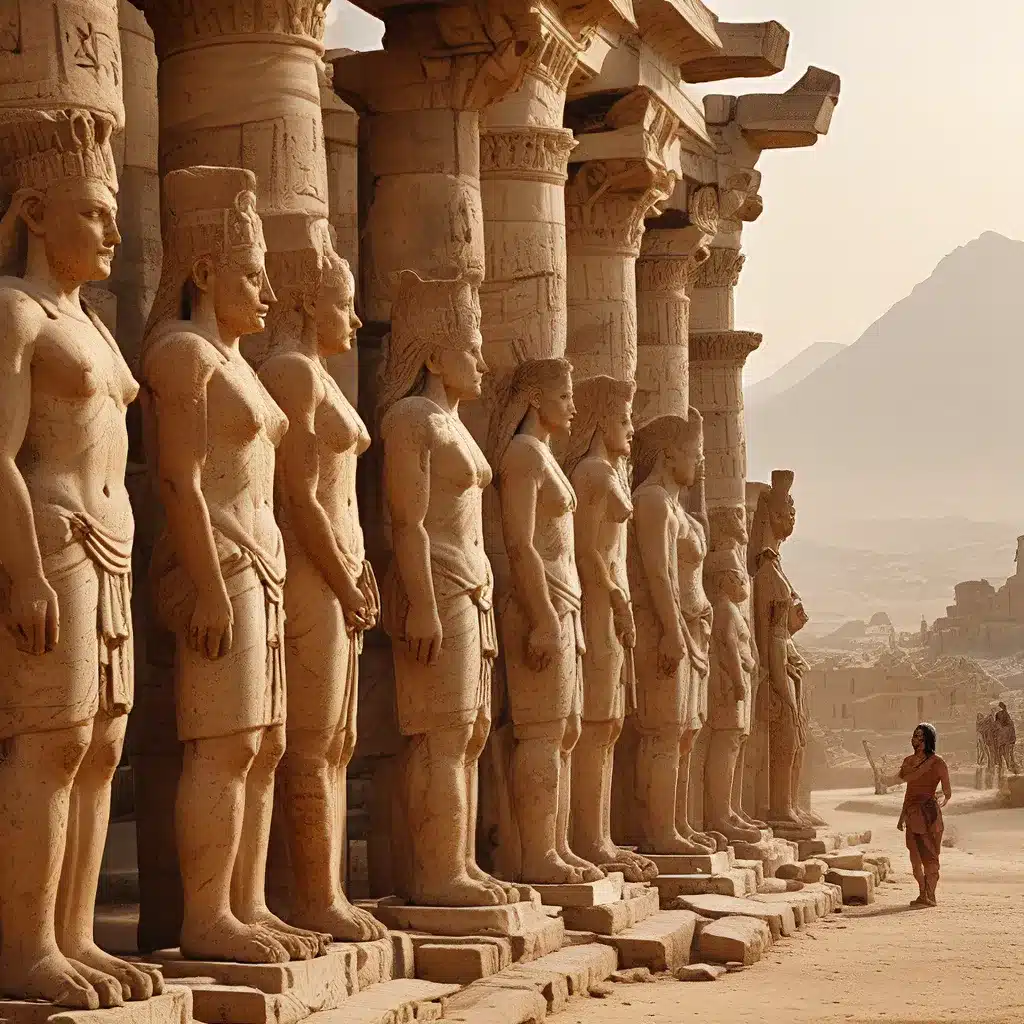
In the ever-evolving landscape of human history, the stories and legacies of ancient civilizations continue to captivate our collective imagination. From the grandeur of the Egyptian pyramids to the technological marvels of the Mesopotamian empires, these civilizations have left an indelible mark on the course of human development. As we delve into the rich tapestry of the past, we uncover not only remarkable archaeological discoveries but also valuable insights that can shape our understanding of the present and guide us toward a more enlightened future.
The Enduring Significance of Black History
One such pivotal moment in the preservation and celebration of ancient histories is the creation of Black History Month in the United States. Pioneered by Carter G. Woodson, a groundbreaking African American historian and the second Black American to receive a PhD from Harvard, this annual observance aimed to shed light on the often-overlooked contributions of Black individuals and communities throughout history.
Woodson’s vision for Black History Month was not merely a retrospective exercise, but a dynamic tool for racial uplift and societal transformation. He believed that by educating the public about the rich tapestry of Black history, he could challenge the prevailing narratives and prove the inherent worth and value of the African American experience. Woodson understood that the erasure of Black history was a means of perpetuating systemic oppression, and he sought to rectify this by making Black history accessible to a wider audience.
In the decades since its inception, Black History Month has evolved, gaining greater prominence and significance. While some may question its continued relevance in an increasingly diverse and seemingly more equitable society, the underlying principles that guided Woodson’s vision remain just as crucial today. The preservation and celebration of cultural heritage and historical narratives are essential for fostering a deeper understanding of our shared past and its lingering impact on the present.
Uncovering the Lessons of Ancient Civilizations
Beyond the specific context of Black History Month, the study of ancient civilizations holds profound lessons for all of humanity. By delving into the complex histories and social structures of these bygone eras, we gain a richer appreciation for the diversity of human experience and the ongoing struggle for progress and enlightenment.
One of the most striking aspects of ancient civilizations is their ability to shape the trajectory of human development. The Mesopotamian empires, for instance, were pioneers in the realms of astronomy, mathematics, and engineering, laying the groundwork for technological advancements that would echo through the centuries. The Egyptian and Mesoamerican cultures, with their intricate systems of religious beliefs, architectural marvels, and agricultural innovations, demonstrate the remarkable capacity of the human mind to adapt and thrive in diverse environmental and cultural contexts.
Moreover, the study of ancient civilizations can shed light on the complex interplay between power, ideology, and social stratification. The rise and fall of these empires often reveal the fragility of even the most entrenched political and social structures, underscoring the need for ongoing vigilance and a willingness to critically examine the assumptions that shape our world.
Preserving Cultural Patrimony in the Digital Age
As we delve deeper into the stories of ancient civilizations, one pressing concern emerges: the preservation of cultural patrimony. Museums, archives, and libraries play a crucial role in safeguarding the physical remnants of the past, legitimizing and validating the significance of these historical narratives. However, the African American community, as noted by historian Lonnie Bunch, has historically been underrepresented in these cultural institutions, leading to the potential loss of invaluable artifacts and records.
In the digital age, the imperative to preserve and share cultural heritage has become more pressing than ever. Online archives, virtual exhibits, and interactive educational platforms offer new avenues for engaging with the past, democratizing access to knowledge and fostering a deeper appreciation for the diversity of human experiences.
Yet, the responsibility to preserve and document cultural patrimony extends beyond the confines of formal institutions. Individuals and communities must also take an active role in safeguarding their own histories, ensuring that the stories and artifacts of their ancestors are not lost to the ravages of time or the homogenizing forces of modern life.
Lessons for the Future: Embracing the Diversity of Human Experience
As we reflect on the legacies of ancient civilizations and the ongoing efforts to preserve and celebrate diverse historical narratives, we are reminded of the enduring power of the past to shape our present and future.
The lessons of Black History Month and the study of ancient cultures underscore the crucial importance of acknowledging and honoring the diversity of human experience. By recognizing the contributions and struggles of marginalized communities, we challenge the dominant historical narratives and create a more inclusive and equitable understanding of our shared global heritage.
Moreover, the examination of ancient civilizations can inspire us to innovate and push the boundaries of human potential. The technological and cultural achievements of these bygone eras serve as a reminder that the human spirit is capable of remarkable feats, even in the face of seemingly insurmountable challenges.
As we navigate the complexities of the modern world, the legacies of ancient civilizations can provide a touchstone for cultivating empathy, critical thinking, and a deeper appreciation for the richness of our global heritage. By embracing the lessons of the past, we can forge a future that is more inclusive, more just, and more attuned to the diverse tapestry of human experience.
The journey through the annals of history is not merely an academic exercise; it is a call to action, a challenge to shape the future by honoring the past. In the words of historian Lonnie Bunch, “There is no more powerful force than a people steeped in their history.” As we continue to uncover the secrets and stories of ancient civilizations, let us heed this call and strive to build a world that reflects the resilience, the ingenuity, and the shared humanity that has defined our collective past.


